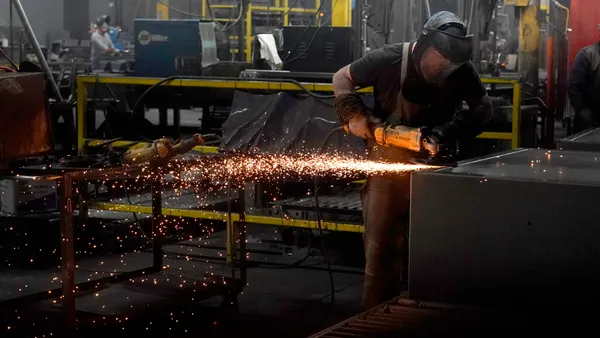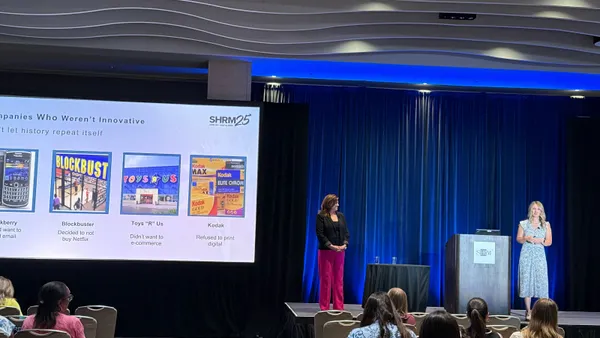Dive Brief:
- Two Nebraska cities, Lincoln and Omaha, were among the five U.S. cities where employment has rebounded most from the COVID-19 pandemic as of May, according to an analysis of U.S. Bureau of Labor Statistics (BLS) data by personal finance website WalletHub.
- WalletHub ranked Lincoln, which had an adjusted employment rate 6.29% in May, first for employment rebound among all 180 cities listed. Other cities where employment bounced back most in May included Washington, D.C., where adjusted unemployment stood at 10.48%, and New Haven, Connecticut, where it stood at 10.73%. The adjusted rates account for BLS' disclosure that it initially misclassified workers on temporary layoffs as "absent from work for other reasons" rather than "unemployed," WalletHub said.
- Tourism-heavy cities were among the worst hit by unemployment in May, with each experiencing unemployment increases of more than 400% between January and May, per the analysis. This group of cities included Orlando, Florida; North Las Vegas, Nevada; Las Vegas; and Honolulu — all were placed in the bottom five of the 180 listed.
Dive Insight:
The U.S. unemployment rate has steadily declined in recent months from a peak of 14.7% in April, according to BLS data. The most recent report, which captured June data, found sharp increases in leisure and hospitality employment, with other notable gains in industries including retail trade; education and health services; professional and business services; and manufacturing, among others, HR Dive reported earlier this week.
This news follows a set of mixed reports on the state of U.S. small businesses during the pandemic. For example, a June report from HR outsourcing vendor Paychex and IHS Markit found small business employment grew by 0.25% in May, despite a year-over-year decline of 3.95%.
Additionally, a survey of small and midsize businesses released the same month by The Harris Poll and HR services firm TriNet found that 60% of respondents had reduced their workforce in some capacity during the pandemic. That's despite 64% of respondents in the same survey saying they expected their businesses to emerge either stronger than or the same as they were prior to the pandemic. An April working paper published by the National Bureau of Economic Research — which has since declared the U.S. to be in a recession — 43% of small businesses were temporarily closed and had reduced their headcounts by an average of 40% relative to January, constituting a "once-in-a-generation crisis" for these businesses.
Even so, the months of June and July have brought slightly more positive news for businesses as states begin to enter re-opening processes. Hiring plans have been announced in the hard-hit restaurant industry, including at Denny's, which made public July 2 its plan to hire 10,000 restaurant-level employees by the end of 2020, HR Dive sister site Restaurant Dive reported. A June survey of small businesses by the Society for Human Resource Management found that 52% expected to recover pre-COVID profitability in six months or less.
The possibility of future COVID-19 outbreaks may continue to impact reopening plans throughout the rest of the year into 2021. At press time, data from the Centers for Disease Control and Prevention (CDC) indicated that hospitalization rates for laboratory-confirmed COVID-19-associated cases have declined in recent months. But the nation’s 7-day moving average of positive tests has slightly increased since Mid-June, according to the Johns Hopkins University of Medicine's Coronavirus Resource Center.
The CDC has generally recommended that employers take several steps ahead of any reopening, namely the implementation of social distancing, sanitization, ventilation and other protocols. But employers may also need to pay attention to discrimination concerns as they decide which employees may return to work and when, legal sources previously told HR Dive.













